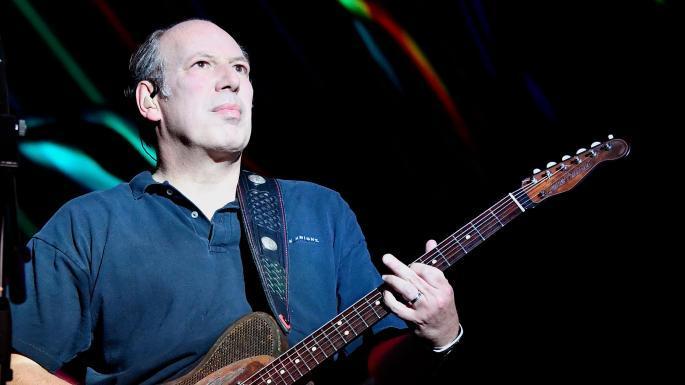I signed up for Hans Zimmer’s film scoring MasterClass series.
I signed up because I would genuinely love to score music for a video game, trailer, commercial, film, etc. some day.
I have a fair amount of musical experience. But am only recently beginning to create music that I can call my own. (Not-counting the emo-pop-punk bands that I was a part of in my younger years… 😅)
Creating has always been nerve wracking for me. There’s a sense of permanence to it that makes it intimidating. But as I’ve grown wiser, I understand now these mental blocks are my own. They’re not real. I need to just go ahead and create. And accept whatever weird stuff comes out.
Musically, I enjoy a diverse range of music. For Deluge.Space, I am focusing on a bit of a spacey/experimental/alternative side. Like Radiohead, Imogen Heap, and Philip Glass. It’s just where I’m having fun right now.
Hans Zimmer is one of my favorite composers.
Check out this video of Hans’ song “Time” from Interstellar, being performed by him and a live orchestra.
He’s composed over 150 films like this.
What a life. 😍
And now, on to his MasterClass.
In the first intro video, he begins by explaining that he may not be able to explain everything thoroughly due to a language barrier, and he may have to demonstrate by example. What he really means is that music is his preferred language, not that he has a problem with English.
“Nothing is a straight line.” Referring to how he comes to discover his ideas.
“However much people discourage you, however hard it gets, at the end of the day, it’s worth it. If you feel compelled to write film music, then do it.”
Themes
“Find the simplest tune that carries your story.” –Hans Zimmer
“I’m not to make film music. I’m trying to tell the story that the filmmakers are taking.”–Hans Zimmer
Beethoven’s 5th—a simple theme any kid who walks up to a piano can play.
The first thing you say, your first notes, have to take you through the story.
Sometimes, you have to kill your favorite babies 🤷🏻♂️
Choose your key [signature] wisely
Hans likes writing in D, because basses can do the vibrato on D but not the open E.
Pick something that gives you the most freedoms and possibilities.
Themes as questions and answers
“Wherever my hand falls, there’s a question and an answer.”–Hans Zimmer
A question, with another question…unanswered. Maybe answers.
A conversation.
It’s a language.
Raise the stakes in the question.
Hans doesn’t think the song through. He gravitates toward the questions.
Test the DNA. Is it adaptable?
Storytelling.
Postpone the “I love you” until the very last scene.
Next, he reviews his theme from Sherlock Holmes.
(I’ll need to find out exactly the name of this–it wasn’t obvious.)
There’s some “meanness” in the conversation.
It’s not even much of a time. Just a really efficient motif.
Next, the tune from Interstellar. (See the first vid above.)
“Christopher Nolan was being specific in his unspecificity.”
Just a few notes in the right order.
Most of his tunes, you can play with one finger.
The simplicity of the material let’s you expand outward.
It’s emotionally tight.
(Again, Beethoven’s 5th)
Know what you want to say. You have to be clear about that.
Music is the appropriate language to express emotion.
When we run out of words, and beautiful pictures, we have music.
Lovely.
Looks like I’ve got a bit of homework to do:
“Find a scene you love in a film, and create an original score by setting up a question and answer motif.”

